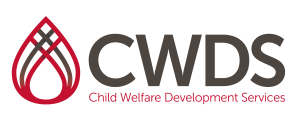Culture & Diversity
Having A Sexual Health Conversation With Youth In Care
This workshop proposes that to effectively reduce current rates of unplanned or unwanted pregnancy, HIV, sexually transmitted infections, and non-consensual or exploitative sexual circumstances among dependent youth in care requires thinking beyond traditional approaches.
Read More about Having A Sexual Health Conversation With Youth In Care Posted In:Culture & Diversity
Medical Aspects
Perinatal Substance Exposure
In this course, trainees will learn about the signs, symptoms and effects of perinatal substance exposure.
Read More about Perinatal Substance Exposure Posted In:Medical Aspects
Substance Abuse
HIV/AIDS: Basics and Beyond
In this course, trainees will learn about the characteristics and psychosocial issues of people living with HIV and AIDS and methods of assessment.
Read More about HIV/AIDS: Basics and Beyond Posted In:Medical Aspects
Health Care Needs
In this course, trainees will identify the common health care issues of children and youth involved in the child welfare system and recognize the role of care providers and foster care public health nurses in the care, treatment, advocacy, and follow-up of health care needs for children in their care.
Read More about Health Care Needs Posted In:Medical Aspects
Failure to Thrive
In this course, trainees will learn about the normal growth pattern in children and how to interpret a growth chart and how it is used as well as understand how “failure to thrive” is diagnosed.
Read More about Failure to Thrive Posted In:Medical Aspects
Advanced Physical Abuse and Neglect for Child Welfare Workers
In this course, the trainee will accurately identify factors that constitute abuse and/or neglect as defined by the Welfare and Institutions Code Section 300 (a)-(j), and distinguish scenarios and photographs of child maltreatment.
Read More about Advanced Physical Abuse and Neglect for Child Welfare Workers Posted In:Medical Aspects
Fetal Alcohol Spectrum Disorders (FASD) – Part 2
In this course, trainees will recognize the neurobehavioral characteristics of FASD at different ages, become familiar with reasonable expectations and the most effective strategies for facilitating positive change and effective communication with individuals with FASD, and understand the prevention and remediation of secondary disabling conditions associated with FASD.
Read More about Fetal Alcohol Spectrum Disorders (FASD) – Part 2 Posted In:Medical Aspects
Substance Abuse
Fetal Alcohol Spectrum Disorders (FASD) – Part 1
In this course, trainees will gain the historical understanding of the effects of prenatal exposure to alcohol and how this relates to present and future awareness, describe the mechanism, effects and main neurological deficits of prenatal exposure, their characteristics and prevalence, and understand the difference between primary and secondary disabling conditions associated with FASD.
Read More about Fetal Alcohol Spectrum Disorders (FASD) – Part 1 Posted In:Medical Aspects
Substance Abuse



